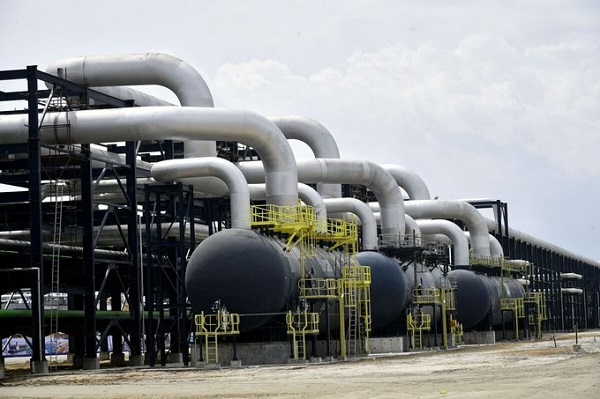Our Terms & Conditions | Our Privacy Policy
Africa’s Energy Future: Nigeria and Angola to lead the charge
 AFC names Nigeria, Angola as front-runners in Africa’s energy transformation
AFC names Nigeria, Angola as front-runners in Africa’s energy transformation
Nigeria and Angola are now central to Africa’s push for energy security, with the Africa Finance Corporation (AFC) projecting that refining capacity on the continent could meet up to 90% of its fuel demand, almost double from 2024’s 45%.
This projection was made in the AFC’s newly-released “State of Africa’s Infrastructure Report 2025.”
The report highlighted that if existing and upcoming refineries operate at full capacity, Africa’s reliance on imported petroleum products could reduce drastically.
The Dangote Refinery in Nigeria is described as the most significant facility leading this transformation.
Commissioned in May 2023, it is Africa’s largest oil refinery, with a daily processing capacity of 650,000 barrels.
Its scale positions it as a crucial tool for reshaping not just Nigeria’s, but the continent’s energy landscape.
Alongside Dangote, the ongoing reactivation of Nigeria’s government owned refineries is also expected to play a significant role.
In 2023, 55% of Africa’s petroleum product demand was met through imports. But the AFC believes that if the continent’s full refining potential is realised, this figure could drop to just 10%.
Alongside Dangote, the ongoing reactivation of Nigeria’s government owned refineries is also expected to play a significant role.
To reach this potential, the AFC recommends a dual investment strategy.
First, about $16 billion is needed to upgrade existing refineries, a move that would improve fuel quality and reduce imports.
Second, greenfield projects, such as those in Nigeria and Angola, are key to meeting long-term demand and anchoring future energy independence.
These investments must also address challenges in transportation and distribution networks, including pipelines, railways, and port infrastructure.
The report also emphasised that any new energy infrastructure must also be resilient enough to support future energy transitions.
While Nigeria leads with infrastructure like the Dangote Refinery, Angola is also named by the AFC as a rising hub.
“Both countries are expected to drive new investment and infrastructure across West and Central Africa, helping the continent achieve fuel security and reduce external dependency,” he stated.
SP/AE
[ad_1]
Images are for reference only.Images and contents gathered automatic from google or 3rd party sources.All rights on the images and contents are with their legal original owners.
[ad_2]



Comments are closed.